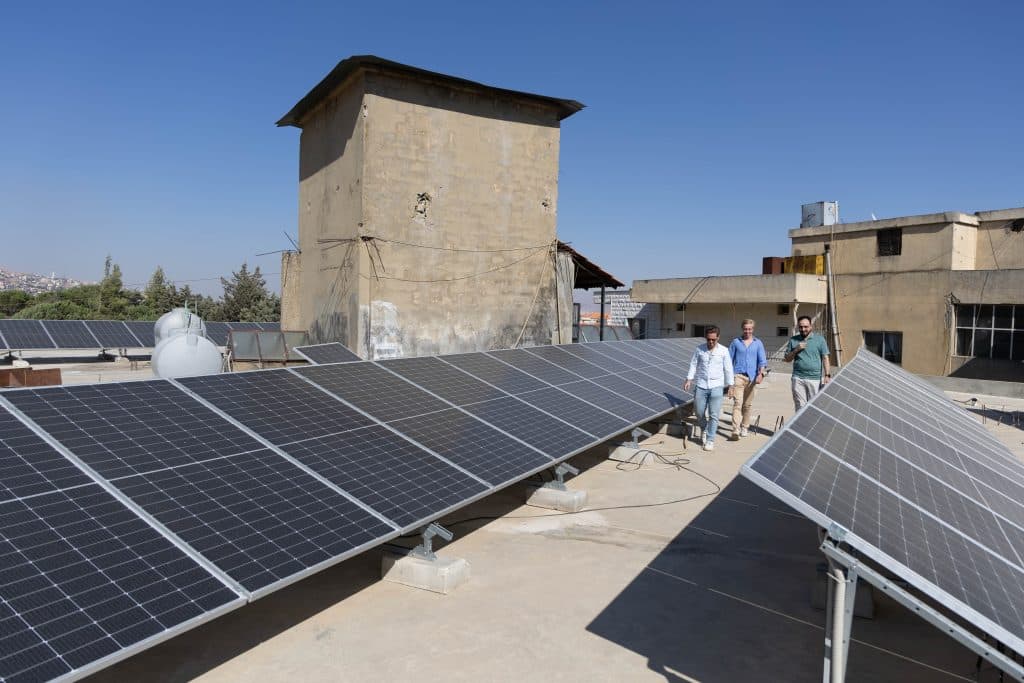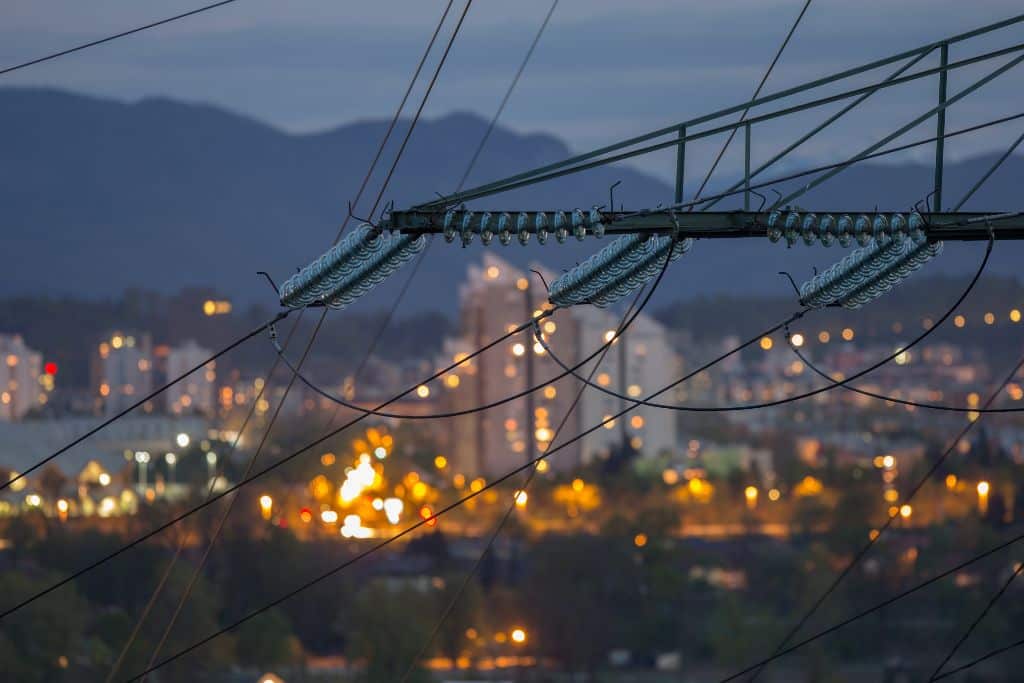“More often than not, I would spend the mornings sitting patiently in my classroom, quietly waiting for the lights to turn on. I cannot teach in darkness. I feel bad for the kids that just want to learn, but what can I do?” said one teacher from Al Dar School in Tripoli, Lebanon, when asked about Lebanon’s energy crisis.
—
Lebanon’s Energy Crisis, Explained
The World Bank claims that Lebanon’s energy crisis could rank among the top-three worst in terms of standard of living since the mid-1800s. With state power coming on sporadically and for merely an hour or two a day at most, many are left in darkness, drenched in sweat from the humidity and engulfed in the endless hum of diesel generators powering only the homes of the wealthy.
Human Rights Watch calls electricity a vital lifeblood of modern life, a fundamental aspect of nearly every part of living, from refrigeration and clean water to assistive aids and home temperature regulation. Yet, the reality is that as Lebanon’s economy continues to collapse, the majority have no choice but to exist with what little the state can provide.
For those who can afford the luxury of privately sourced electricity, the situation is taking a massive toll on the environment, with “pollution from diesel generators rising by 300% since the beginning of the crisis”, according to Najat Aoun Salibae, Professor of Chemistry at the American University in Beirut, interviewed by The Lancet.
The rise of diesel energy is costly to the environment and to the health of Lebanese citizens, as air pollution from diesel emissions is known for its association with cancer and numerous other substantial health and lung issues.
Amid a mismanaged government ripe with corruption and unable to crawl out of poverty, non-governmental organisations and non-profits like Aid Pioneers have stepped in to work with local leaders and communities to provide support in this challenging period.
In Conversation with Aid Pioneers on Their Recent Trip to Lebanon
In a discussion with Earth.org, Julian Adler, co-founder and Managing Director of Aid Pioneers, spoke on Lebanon’s energy crisis and how grassroots organisations can help. Aid Pioneers is a Berlin-based non-profit that bridges the gap between local leaders and global resources, fostering sustainable change in low- and middle-income countries.
With partners like The Altenburg Foundation and Ströer behind them, Aid Pioneers has raised millions of euros, impacted more than 40,000 lives, and accomplished many milestones within the sectors of Clean Energy, Medical Procurement, and Gender Inequality.
Recently, Julian and his team visited their partner organisations in Lebanon to speak with the people behind the Al Manhaj Charitable Association, an organisation home to numerous operations, including an Ability Centre, which provides medical care and education to nearly 100 children with various mental and physical disabilities. Without adequate electricity, the centre cannot provide the proper treatment, education, and care these children deserve.
Like many others, the Al Manhaj Ability Centre relies on a combination of state power and expensive, polluting diesel generators to operate, which incur high costs and put a massive strain on their already tight budget. Although expensive, the generators aren’t without challenges and fail to provide reliable and clean energy. As a form of fossil fuel, diesel generators are a significant contributor to climate change.

You might also like: The Food Crisis in Lebanon: A Warning for Weaker Economies
The Environmental Impact of Diesel Generators
A common concern surrounding diesel generators is their emissions. These generators release volatile organic compounds, nitrous oxide, and other environmentally damaging pollutants. Henri Roth, Head of Legal at Aid Pioneers, reflected on an afternoon that he and Julian had been sitting outside the school only to be interrupted by a sudden onslaught of what appeared to be rain. In fact, the “rain” turned out to be hundreds of black specks of coal, dirt, and charcoal from a coughing generator nearby.
“As one of the most highly air-polluting fuels when burned, particulate matter released from diesel generators substantially worsens local air quality, resulting in severe adverse health impacts for local communities, including heavily increased rates of pneumonia, bronchitis, and asthma, and can even cause permanent lung damage,” Nina Pusic, former climate consultant with the United Nations, told Earth.Org.
Acid rain is a known side effect of diesel emission. It is classified by the World Health Organization (WHO) as carcinogenic to humans due to its potentially cancer-causing effects, among being a contributor to the production of ground-level ozone, a harmful air pollutant damaging to crops, trees, and other vegetation. These pollutants then enter the human food chain after instances of acid rain, via the foods and water we consume.
More on the topic: How Does Acid Rain Affect the Environment
Aid Pioneers has recently begun crowdfunding and partnering with other local and grassroots organisations to fund the installation of solar panel systems, which would provide clean, reliable, and cost-efficient electricity to the Al Manhaj Ability Centre and other deserving organisations across Lebanon, Libya, and Africa.
Solar Energy as an Alternative to Diesel Generators
Unlike diesel generators, solar power is a form of renewable energy, meaning that it is derived from natural sources and replenishes faster than consumed; some other typical examples of renewable energies are wind and hydropower. To tackle climate change, the International Energy Agency (IEA) has stated that investments in renewable energy, especially solar, need to triple by 2030 if we are going to avoid the worst consequences of climate change, and keep international climate goals within reach.
Solar energy is clean energy, creating zero carbon emissions and no air pollution, avoiding the harmful implications of using fossil fuels like diesel generators. Solar panels are now the cheapest source of electricity generation in most parts of the world, being low-cost and low-maintenance. They can generate power in any climate, meaning remote and low-income communities could rely on solar panels for consistent, clean, inexpensive energy.
More about the topic: The Advantages and Disadvantages of Solar Energy
Why Hasn’t the Switch to Solar Energy Happened Already?
You might be asking why organisations like Al Manhaj’s Ability Centre have yet to switch to solar energy. One major explanation lies behind the high installation costs in developing countries, historically lacking the necessary public investment in high-quality energy infrastructure.

Pusic explained that the high initial investment costs represent the most significant barrier blocking institutions like Al Manhaj Ability Centre from installing and using solar energy systems. Due to a lack of historical investment in renewable energy, developing countries face much higher implementation costs than wealthier countries, making aid often necessary for access to clean energy.
To solve Lebanon’s energy crisis and tackle global climate change, investment in direct aid, such as via Aid Pioneers, is urgently needed to ensure countries can finance the clean energy transition and improve local air quality without increasing debt for countries already struggling economically.
Therefore, grassroots organisations who are stepping in to raise funds are greatly appreciated and needed for installing solar systems at scale.
Could Scalable Solar Panel Systems Dig Lebanon Out of Its Energy Crisis?
Here is what Julian Adler had to say about Aid Pioneers’ solar panel initiative and how it presents a potential solution to helping countries like Lebanon gain access to clean and reliable energy:
“A great paradox of our time is that, due to a lack of access to finance, solar panels are least likely to be installed in areas where the sun is most abundant. At the same time, countless local schools and hospitals struggle with failing electricity grids and the rising cost of diesel to run generators.
At Aid Pioneers, we finance solar systems by providing these organisations with a grant and an interest-free loan tailored to each organisation’s ability to repay its future diesel cost savings. Our system provides long-term savings and energy security, ensuring every hospital and school has the electricity to run life-saving equipment or get out-of-school refugee children into their classrooms.”

Action Starts Now
No place on Earth will be left unaffected by climate change, and everyone deserves access to clean air and clean water. It should also come as no surprise that climate change and poverty are inextricably combined as poorer countries lack the resources to shift towards environmentally sustainable options and are at the most risk of the impact of climate change, including flooding, drought, and temperature increases.
Grassroots efforts from organisations globally, including Aid Pioneers, are stepping up to catalyse the transition to a fully renewable energy grid, solving the triple threat of climate change, air quality, and energy security. We urge everyone to step in and do their part to support the efforts, whether by direct donations, volunteering, or helping to spread the word. We can no longer afford to sit back and wait for others to take action.
You might also like: Climate Finance: Are Rich Nations Doing Enough?


















